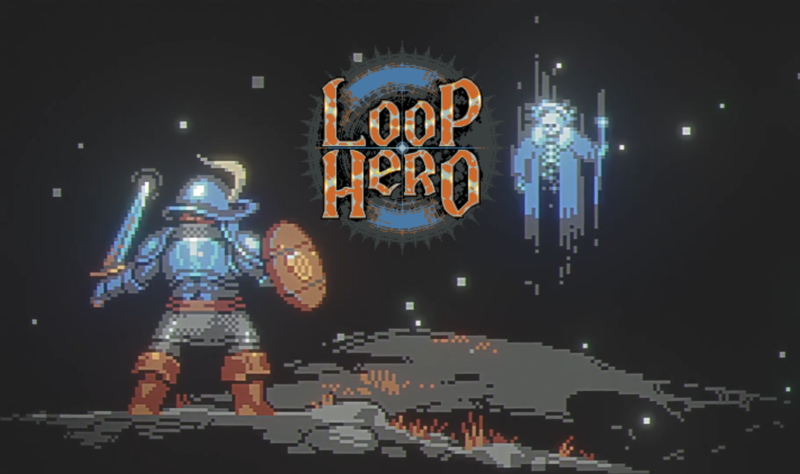
Enlarge (credit: Devolver Digital / Four Quarters)
The game includes some aesthetic exceptions, particularly a few higher-res illustrations, but the point stands. Loop Hero was made to work within the processing confines of an '80s PC, as opposed to immediately capturing your imagination at a single glance. The reason lies in the game's key design principle: in more respects than any other RPG we've seen, Loop Hero wrests direct control away from the player. If you thought the menu-driven combat of pioneering JRPGs was too "hands-on," you ain't seen nothin'.
In a figurative sense, this game reimagines Camelot as a hamster wheel, where knights like Sir Galahad have become tiny, pixellated cogs. Yet as boring as that might sound, I cannot stop playing this game.
After nearly writing off this Devolver Digital game as another uninspired, lo-fi indie game, I decided—admittedly, upon a colleague's prodding—to give Loop Hero a spin. Pretty quickly, I discovered a fascinating twist on the "idle" genre—thanks to how it gives players significant choices, secrets, upgrades, and even a compelling narrative. The results won't be everyone's cup of barely interactive tea, but if you like the idea of a "second monitor" game with tasteful dashes of tower defense and deckbuilding, you should seriously consider running Loop Hero in the background of your nerdy life.
No comments:
Post a Comment